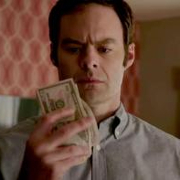|
Markovnikov posted:Can't they just declare bankruptcy for most of that debt? It's several things. -they had a loan that started at a lower rate for several years but was designed to go up in interest later. They didn't really account for this. -loss of employment had a big part as well -when your house gets so far underwater that it's just throwing money into a black hole people start to feel like they shouldn't bother paying And of course as more houses went vacant, the prices went down lower and the last factor becomes even more true. Looks like this is a situation where all three applied.
|
|
|
|

|
| # ? May 31, 2024 12:11 |
|
A lot of mortgages have variable interest rates and many of them have backloaded interest where the rate increases later in the life of the loan. This was "good" for people who were buying and flipping when the market was hot, as they would only pay an artificially low rate before getting out. These mortgages were also sold to longer-term home owners under the guise of "well, you'll make more money in 5 years, so you can afford a higher mortgage payment" which is not exactly the full on most retarded thing in the world but does not apply to 100% of home buyers.
|
|
|
|
Markovnikov posted:Can't they just declare bankruptcy for most of that debt? Mostly because of unemployment. Many of the awful adjustable rate mortgage time bombs didn't explode in cost because the Fed kept interest rates so low. But you can't fix the lack of jobs.
|
|
|
|
Markovnikov posted:Can't they just declare bankruptcy for most of that debt? A lot of people lost their jobs and then couldn't pay their mortgages. A lot of people also had ARMs and the payments shot up and they couldn't afford their mortgages. Then a lot of people were underwater and decided to walk away.
|
|
|
|
Time bomb is an apt description of those loans. Variable interest rate and balloon loans were a big deal in the 80's. My parents bought a house in the 80s in Phoenix, and they went for the straight, no-nonsense fixed interest rate 30 year traditional mortgage. At first they felt like chumps for paying $500/month mortgage while their neighbors were paying $200/mo with a balloon payment due in 5 years. Then all the neighbors lost their houses, and they stopped feeling like chumps.
|
|
|
|
Hrm, so the whole crisis was lenders enabling people to do stupid financial things basically. One last question, since I know zero about mortgages and I'm years away of even starting to think about buying a house. In these mortgages: canyoneer posted:Time bomb is an apt description of those loans. Variable interest rate and balloon loans were a big deal in the 80's. Can you overpay and eat into the principal? Or are you stuck with paying for the next 30 years? Somehow the prospect of paying for something for 30 years seems daunting to me. Do those kind of loans still exist?
|
|
|
|
Markovnikov posted:Can you overpay and eat into the principal? Yes. In almost no case is there a penalty for paying early. So you can and should overpay usually. As to whether they still exist, yes, 30 year mortgages are the norm; otherwise even as a great saver you're looking at 15-20 years of saving to buy a house completely in cash, and by then if you've had kids they're about to go to college and you don't need a house anyway. Also your kids probably hate you because they've been living in bunk beds for 15 years. Nail Rat fucked around with this message at 16:45 on Jan 28, 2015 |
|
|
|
Markovnikov posted:Can you overpay and eat into the principal? Or are you stuck with paying for the next 30 years? Somehow the prospect of paying for something for 30 years seems daunting to me. 30 year conventional is... pretty much the convention, yes. Pretty much all of them allow over-payment (not sure if any still don't?) which goes directly into principal. Mine updates as they receives payments too so I get to feel all
|
|
|
|
Nail Rat posted:Also your kids probably hate you because they've been living in bunk beds for 15 years. Well too loving bad for them. There are worse things in life than growing up in an apartment.
|
|
|
|
MrKatharsis posted:Well too loving bad for them. There are worse things in life than growing up in an apartment. Yeah, I'm just pointing out at that point why buy a house at all. (This is the true good with money move, never loving buy, rent forever. Also, no kids.)
|
|
|
|
Nail Rat posted:Yeah, I'm just pointing out at that point why buy a house at all. We're in a brutal rental market and I'm fearing that our next move we're going to be on the "buy" side of the calculator. But honestly I just don't want to own a loving home, even though it looks like it may be significantly cheaper. Like $400+ a month cheaper, even factoring in all of the extras that come with ownership. Ugh.
|
|
|
|
30-year fixed rate mortgages are the norm, and for some good, not-so-obvious reasons: 1. People rarely live in the house for the full 30 years, so they never pay their mortgage off, instead rolling over any equity (lol) into their next home and usually "trading up" into something bigger for near the same or cheaper mortgage amount. 2. Being fixed rate, the Principal and Interest portions of your monthly payment are constant throughout the life of the loan. With inflation, cost of living increases, raises, etc. people usually make more money over time so the mortgage payment becomes a smaller and smaller percentage of their take-home salary as a result. Conversely, this is why ARMs are Bad With Money, because you are actually making your future payments more, and possibly unaffordable, depending on what your financial situation is in the future. 3. 20- or 15-year mortgages are an option to have a lower interest rate and pay off the loan quicker, but come with a higher monthly payment as a result. You can always pay more on a 30-year mortgage to reduce the amount of interest paid over time, and build equity faster, but you have the flexibility to fall back on your normal payment if money is tight or an emergency pops up. 4. Mortgage interest is tax-deductible so the higher amounts you are paying towards interest in the first few years of the 30-year mortgage are essentially reduced by your marginal tax rate every year. Also, buying/mortgaging a home is only a good idea if you plan on being in said home for more than 5 to 7 years because of closing costs, realtor fees when selling, and other factors. If you plan on buying a house with the intent to sell it in less than that time you are almost always better off renting instead. And a good rule of thumb is to keep your PITI (principal, interest, taxes & insurance) monthly payment to under 25% of your take-home pay. Anything higher and you probably can't realistically afford it without being house poor or risk defaulting in the future. Also budget for 1 - 2% of the house value in maintenance costs every year you own the house. Regardless, buying a house as an investment or savings for college/retirement is a bad idea. Getting financial advice from your church congregation is a bad idea. Do Never Buy
|
|
|
|
I'm slowly coming around the fact that I'll never be able to own property in a desirable part of Southern California.
|
|
|
|
I live in Seattle so the prospect of me ever actually owning a house is so loving laughable they can hear me guffawing in Manhattan. When rent prices are increasing 25-30% each year in my neighborhood, owning a house would be the smart thing to do but the home prices are $800,000+ for a tiny 70 year old piece of poo poo that's falling apart and the only reason it's for sale anyway is so some developer can come in, tear it down, and replace it with a 36 unit complex and jack up the local rent market some more.
|
|
|
|
HonorableTB posted:I live in Seattle so the prospect of me ever actually owning a house is so loving laughable they can hear me guffawing in Manhattan. When rent prices are increasing 25-30% each year in my neighborhood, owning a house would be the smart thing to do but the home prices are $800,000+ for a tiny 70 year old piece of poo poo that's falling apart and the only reason it's for sale anyway is so some developer can come in, tear it down, and replace it with a 36 unit complex and jack up the local rent market some more. Uhhhhh how does increasing the housing supply in a high-demand housing market raise prices?
|
|
|
|
pig slut lisa posted:Uhhhhh how does increasing the housing supply in a high-demand housing market raise prices? Lets just say HTB has been known for being a bit hyperbolic in the past. I'm sure he's just comparing rent in an old complex vs rent in a new complex without considering everything else. That said, gently caress luxury rental complexes.
|
|
|
|
pig slut lisa posted:Uhhhhh how does increasing the housing supply in a high-demand housing market raise prices? Because they take a unit/units that were serving a lower price point in the market and replace them with units serving a higher price point. Eventually you get a two tier market where people are forced to rent at the higher price point because there are no other options in the area. Ninja edit: this is happening in LA right now too.
|
|
|
|
pig slut lisa posted:Uhhhhh how does increasing the housing supply in a high-demand housing market raise prices? No matter how nice the neighborhood is, people eventually refuse to pay more than a couple grand a month for a place to live that's lacking features like "an intact roof" and "electrical outlets that don't catch fire." Tear it down and replace it with "luxury apartments," though, and the sky's the limit.
|
|
|
|
It's just weird to call out multifamily development specifically as the culprit. There are a bunch of popular neighborhoods all around the country where the demand to live in them keeps increasing. If additional housing units can't be developed to address this increased demand, then affordability gets even worse as people buy up what single family homes exist and renovate/upgrade them into luxury tier. e: Oh look it's illegal to build even a duplex in the vast majority of this increasingly popular city, whoever could have predicted it would face an affordability crisis? pig slut lisa fucked around with this message at 19:13 on Jan 28, 2015 |
|
|
|
Celador posted:30-year fixed rate mortgages are the norm, and for some good, not-so-obvious reasons: This is pretty much where things are at. I bought my house last year as I know I'll be there for at least 10 years. I put down 20% deposit which puts anyone in a better position for repayments. Having 10% or 5% deposit makes payments lovely. Allowing for tax write offs I'm paying less in interest than renting the equivalent house. You do lose the flexibility of renting where you can give notice and leave. On the upside the interest decreases with each payment and inflation destroys the value of the mortgage principle. So buying is a bit like having a landlord that never increases your rent but with the downside of any money you have in the house is not liquid and easy to sell quickly. For some people buying will not stack up financially so make sure you do your financial calculations as you might just be better off investing the money.
|
|
|
|
Seattle is going to be San Francisco 2.0 if they continue to repeat the same anti-density mistakes that SF did/continues to do. And unfortunately with the "Seattle Process" we're doomed because one stodgy NIMBY can hold up everything in reviews, studies, and appeals for years. It's ironic that Seattle thinks itself so liberal and progressive when it's actually pretty deeply conservative, we just don't care about all that god/guns/gays rhetoric.
|
|
|
|
I am/was bad with money, but I want to change all that; one of these is paying off any credit card debts I had when I was 18; but this was 7 years ago. Is there anyway to tell what ones would be beneficial to pay off or just wait the extra year and have it "wiped"? Is there anyway to tell which ones would be wiped? Most of them seem to be, but I have this one lingering AT&T credit from way back then thats still coming up after being brought to credit agency to credit agency. I kinda want it to end.
|
|
|
|
Get your report from annualcreditreport.com and post a thread. Don't get all three at once, just one. Get the next one 4 months later, repeat for the rest of your life. As you make progress you can confirm that things are getting updated correctly on your report.
|
|
|
|
MickeyFinn posted:Because they take a unit/units that were serving a lower price point in the market and replace them with units serving a higher price point. Eventually you get a two tier market where people are forced to rent at the higher price point because there are no other options in the area. But that's not what is (theoretically) happening in this case - replacing an old house with 36 units is very unlikely (in a vacuum, by itself) to cause rents to go up.
|
|
|
|
What interest are you guys paying for 30years fixed? You can't even get 30 years fixed here (Ireland), the max you can fix is 5. I just signed a 30 year variable at 4%, still a ripoff considering the ecb rate. I bought well within my budget but admittedly I'm pretty hosed if the 80s happen again. Buying a house in Ireland is always bad with money but everybody does it, it's a collective madness. I blame the British.
|
|
|
|
3 1/8, I was able to refinance at the bottom of the market. USA.
|
|
|
adamarama posted:What interest are you guys paying for 30years fixed? You can't even get 30 years fixed here (Ireland), the max you can fix is 5. I just signed a 30 year variable at 4%, still a ripoff considering the ecb rate. I bought well within my budget but admittedly I'm pretty hosed if the 80s happen again. Buying a house in Ireland is always bad with money but everybody does it, it's a collective madness. I blame the British. 3.5%, we didn't bother trying to refi lower from there since it just costs fees and such. But similarly, near the bottom of the market, though a few months later than sms I bet.
|
|
|
|
|
Barry posted:But that's not what is (theoretically) happening in this case - replacing an old house with 36 units is very unlikely (in a vacuum, by itself) to cause rents to go up. That is exactly what's happening in a lot of Seattle neighborhoods, because it's not happening in a vacuum, by itself, with totally fungible Housing Units. Crappy, neglected, but cheap housing in a rapidly gentrifying and extremely high-demand area (where demand outstrips any reasonable pace of construction!) is being replaced by expensive luxury apartments. And, when the market should tumble back to earth, rents will remain high because the developers who threw up thousands of units during the boom will have to keep paying down their own debt. Ballard is an excellent example - there's good supply, and if you want to rent an apartment there, you won't have much trouble finding an open unit in a nice new building. Their vacancy rate is actually the highest in Seattle. But, rents remain high, because all those new buildings put a floor on what landlords can charge before they go into the red themselves. Landlords of older, paid-off buildings will keep rents slightly lower but still high, because hey, it's an expensive neighborhood.
|
|
|
|
Ok, but in this specific example (swapping out 1 unit for 36 units), how could that single event cause rent to go up? You now have 36x the units that you used to (give or take based upon sizes and all that, naturally).
|
|
|
|
Barry posted:Ok, but in this specific example (swapping out 1 unit for 36 units), how could that single event cause rent to go up? You now have 36x the units that you used to (give or take based upon sizes and all that, naturally). There are at least 36 Amazon employees who are not willing to pay $x to live in a ramshackle house on Capitol Hill (or whatever other popular neighborhood), but they are willing to pay $x+y to live in a luxury one-bedroom in the same neighborhood. The developer knows this. So, the developer removes the $x ramshackle house, and charges $x+y when the new apartment building goes up. Rent for the same location goes from $x to $x+y. Space Gopher fucked around with this message at 20:20 on Jan 28, 2015 |
|
|
|
In New Zealand I have two fixed rate mortgages for 6% and 6.25%. The revolving credit account secured against the house is 6.75% but with my business cashflow going into it I worked out I'm effectively paying 2% on that account. e: The same rates today are 5.55% andd 5.59%. We aren't in the same financial poo poo as most countries and this is where the Irish move to so they can get jobs. I'd love to pay your lovely 4% interest rate. Devian666 fucked around with this message at 20:19 on Jan 28, 2015 |
|
|
|
Space Gopher posted:There are at least 36 Amazon employees who are not willing to pay $x to live in a ramshackle house on Capitol Hill (or whatever other popular neighborhood), but they are willing to pay $x+y to live in a luxury one-bedroom in the same neighborhood. The developer knows this. So, the developer removes the $x ramshackle house, and charges $x+y when the new apartment building goes up. Rent for the same location goes from $x to $x+y. I'm not sure what argument you're trying to make but it really seems like you're saying that by increasing supply you then increase demand.
|
|
|
|
Barry posted:I'm not sure what argument you're trying to make but it really seems like you're saying that by increasing supply you then increase demand. Yeah, the problem in Seattle right now is that demand so far outstrips supply, that any sort of new development gets bought/rented quickly at high prices. Then people like Space Gopher interpret that as more supply = more demand, which isn't really what's going on. Rents keep going up because there are way more people looking to rent in desirable neighborhoods than there are units available, so of course landlords are increasing prices as long as people keep agreeing to rent at those prices. And since we stifle higher density development so hard (like how most of the city is zoned for SFH, and even the areas that aren't are limited to 5-6 stories), we're just getting further and further in the hole on the supply side. With such limited development opportunities, of course new developments are going to cater to high income people since there's plenty of demand and there's more money in it for the developer. VVVV If you tear down a SFH that housed 2-4 people and replace it with a 60 unit condo/apartment you created a lot more net housing, even if those previous 2-4 people seek housing elsewhere. Yes the demographics may change, and whether or not that's a good thing is a different question. But redeveloping a dumpy rental SFH in the densest, most-desirable, closest-to-downtown neighborhood to increase the housing capacity on that plot of land by 30x makes all kind of sense. That's unfortunately the risk of renting, you're at the whims of the market. The owner of that dumpy rental SFH probably made out like a bandit in the deal. Guinness fucked around with this message at 20:35 on Jan 28, 2015 |
|
|
|
If you bulldoze a few homes that were single family rentals, or divided into multi bedroom rentals at affordable prices you do increase demand, because the people who used to live there now need housing that they cannot obtain. Plus the people who want to move in. Or demand is always flat, but now you have more people who are directly competiting for space when some of them were entrenched. It's not as simple as "MORE HOUSING = LESS DEMAND" when the new housing costs 2x what the old housing did and is unattainable. So now there are more people searching for affordable units, driving up competition, and in effect, driving up prices for "affordable" living. Removing affordable living and putting in luxury apartments increases mean housing prices across the board and only lowers demand for luxury apartments. I'm not a market expert but it seems like you're intentionally not getting his point, or trying to argue that a few specific markets in the USA (SF, Seattle, Boston, etc) aren't completely hosed. But when demand was always higher than supply these developers really gently caress over the affordable markets. People can't just move to a luxury building because that's all that's available. xie fucked around with this message at 20:32 on Jan 28, 2015 |
|
|
|
When a city only lets so much development go on and there's a lot of pent-up demand, yeah, the buildings that go up tend to be luxury ones, because that's the logical thing to do if you can only 'sell' a fixed number of units. If you were a car manufacturer limited to selling 10,000 cars a year, you'd be crazy to go for anything but the high end. Car analogy #2: apartments for poor people in general are frequently just apartments that were once for the more affluent, but are now old, similarly to how there aren't any new cars made that poor people can reasonably afford, but many poor people are nonetheless capable of affording cars, they just get used ones.
|
|
|
|
Barry posted:I'm not sure what argument you're trying to make but it really seems like you're saying that by increasing supply you then increase demand. No - when you change what you are supplying then demand at that price point can change. Again, we're not working with hypothetical and totally fungible Housing Units. If I can stock and sell 30 2015 Honda Accords at $25,000 apiece, but I can't sell even one 1996 Kia Rio at $20,000, then I haven't magically increased demand for totally fungible Transportation Units by switching from old Kias to new Hondas. I've just started stocking and selling a specific product that more people want to buy. The problem is that rental housing takes massive capital investment, so it's not like cars - it takes a long time to pay off a new building, and the debt on the building sets a price floor on what rent can be in that building. When a neighborhood is full of new-ish buildings like this, because there was a boom 10 years ago, it distorts the whole housing market in the neighborhood. It can also lead to unpleasant follow-on effects like landlords not paying for maintenance and upkeep to keep their payments current. Cicero posted:When a city only lets so much development go on and there's a lot of pent-up demand, yeah, the buildings that go up tend to be luxury ones, because that's the logical thing to do if you can only 'sell' a fixed number of units. If you were a car manufacturer limited to selling 10,000 cars a year, you'd be crazy to go for anything but the high end. It appears we have dueling car analogies. But, if it's just a matter of supply, then what's happening in Ballard? They have the highest vacancy rates in Seattle, largely in desirable new high-density developments, but average rents are still quite high. Space Gopher fucked around with this message at 20:42 on Jan 28, 2015 |
|
|
Barry posted:Maybe he pirates them? Which I guess is good with money, at least until you get caught. Gets caught? Software piracy? Maybe a business but not an individual user. Not that I condone piracy but no one "gets caught" from an end user perspective. I just realized I have a good story for the thread and had forgotten about it. I had a friend of a friend receive a large inheritance (300k?) from his grandfather. Not only did he start a bad coke habit but he claimed we were only friends with him for his money, took a helicopter to prom, bought a high end gaming PC instead of building one like we suggested, and then once he realized he was almost out of money spent the remainder on an assorted nuts kiosk in the local mall for, maybe 3 months? It didn't work out. He bitched that everyone "asked for free samples" all of the time.
|
|
|
|
|
Barry posted:Ok, but in this specific example (swapping out 1 unit for 36 units), how could that single event cause rent to go up? You now have 36x the units that you used to (give or take based upon sizes and all that, naturally). It's not like one for 36, it's like 8 for 36 and some of those were already sublet and partitioned. You are correct that strictly replacing X units with X+Y units would in theory drive rent down, but the error in your observation is that housing units are not a strictly fungible commodity competing solely on price. The developer knocks down relatively undesirable property (which they paid a premium for anyways if the sellers had any savvy) and replaces it with high trim, high accomodation luxury rental and prices to recoup their costs plus a profit. There's limited demand elasticity in the housing market because at the end of the day, people have to live somewhere and eventually they just have to choose one of the options available regardless of the price or be homeless. Relatively few people can simply abstain from the housing market until a favorable opportunity presents itself (e.g. crashing a couch or parents house).
|
|
|
|
devmd01 posted:Get your report from annualcreditreport.com and post a thread. Don't get all three at once, just one. Get the next one 4 months later, repeat for the rest of your life. As you make progress you can confirm that things are getting updated correctly on your report. Thanks man. I get a credit report from capitol one, will getting one from annual credit report also affect my rating?
|
|
|
|

|
| # ? May 31, 2024 12:11 |
|
Abu Dave posted:Thanks man. I get a credit report from capitol one, will getting one from annual credit report also affect my rating? No. When you check your own credit, it's a "soft pull," which doesn't change your rating. These are also used for background checks, "pre-screened" offers, and other situations where you aren't explicitly asking to borrow money or have a line of credit. When you apply for credit, they'll do a "hard pull," which does impact your credit score. The point isn't to ding your score for checking your credit; it's to keep track of the number of times you've asked someone to lend you money. If you run around asking a bunch of different lenders to borrow money, that's a sign that you might be taking on too many payments at once, or that you might be in serious trouble and trying to float through it on credit.
|
|
|
































